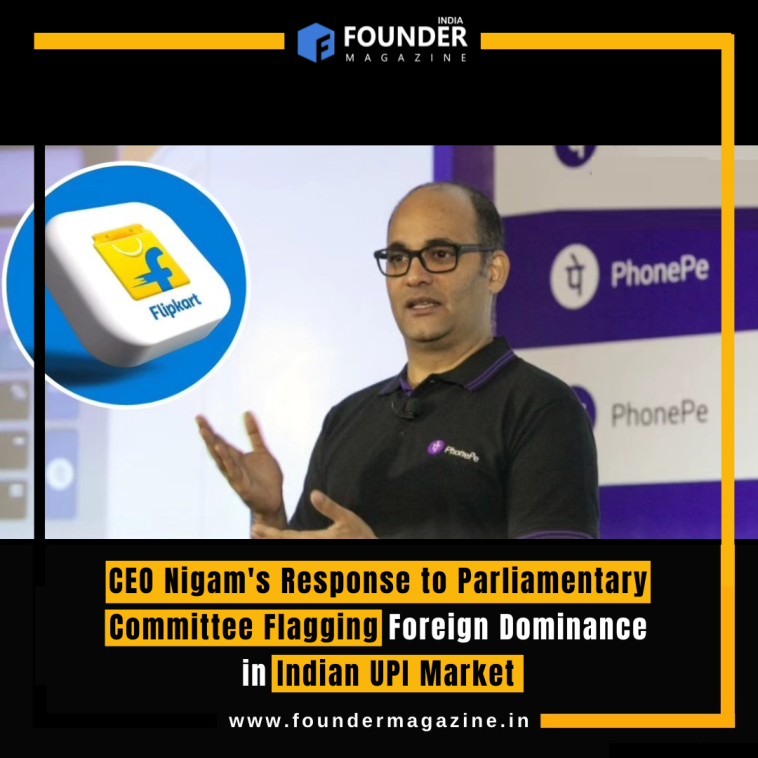As the CEO of a leading player in the Indian fintech industry, Nigam found himself in the spotlight when his company was flagged by a parliamentary committee for contributing to the perceived foreign dominance in the Indian UPI (Unified Payments Interface) market. The committee’s concerns revolved around the growing influence of foreign companies in India’s burgeoning fintech sector and their impact on homegrown payment applications.
In response to the committee’s scrutiny, Nigam stepped forward to address the allegations and provide insight into his company’s operations and contributions to the Indian economy. Central to his defense was the assertion that his company’s presence and success in India were not indicative of foreign dominance but rather a testament to the company’s commitment to the Indian market and its significant contributions to the country’s economic landscape.
One of the primary points of contention raised by the parliamentary committee was the perceived dominance of foreign entities in the Indian fintech space, particularly in the realm of digital payments. With the proliferation of multinational companies offering payment solutions in India, concerns have arisen about the potential impact on local players and the broader financial ecosystem. In an effort to promote made-in-India payment apps and support indigenous innovation, the committee underscored the need to address the influence of foreign companies in the Indian fintech industry.
Nigam, however, pushed back against the characterization of his company as a “foreign entity,” citing its substantial investments in India and contributions to the country’s economic growth. He highlighted the fact that his company had paid over a billion dollars in taxes to establish a base in India, underscoring its commitment to operating within the framework of Indian laws and regulations. Furthermore, he emphasized the role of his company in driving financial inclusion and digitization efforts across the country, thereby aligning with the government’s broader objectives of promoting a digital economy and expanding access to financial services.
Beyond the tax contributions, Nigam also pointed to the employment opportunities generated by his company’s operations in India, highlighting the thousands of jobs created directly and indirectly through its presence in the country. Additionally, he emphasized the investments made in local infrastructure, technology development, and skill enhancement initiatives aimed at nurturing India’s fintech ecosystem and fostering innovation.
While acknowledging the concerns raised by the parliamentary committee regarding foreign influence in the Indian fintech market, Nigam sought to reframe the narrative by highlighting the positive contributions of his company and its commitment to supporting India’s economic growth and technological advancement. He reiterated his company’s dedication to operating in accordance with Indian laws and regulations, as well as its ongoing efforts to collaborate with local stakeholders and empower Indian businesses and consumers through innovative digital payment solutions.
In conclusion, CEO Nigam’s response to the parliamentary committee’s scrutiny offers valuable insights into the complex dynamics of the Indian fintech landscape and the challenges and opportunities associated with foreign participation in the sector. By highlighting his company’s contributions to the Indian economy and its commitment to driving financial inclusion and innovation, Nigam seeks to dispel concerns about foreign dominance while advocating for a balanced and inclusive approach to fostering the growth of India’s digital payments ecosystem.


